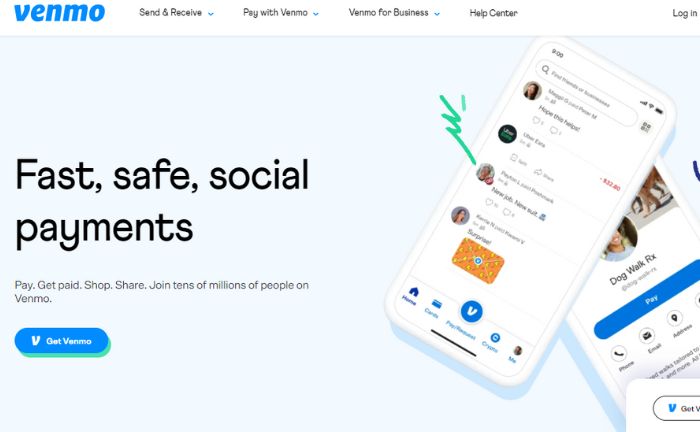Venmo’s recurring payments would be a great option for paying rent for tenants and landlords. However, Venmo does not allow us to Venmo schedule payments, which makes it a big disadvantage compared to other apps regarding paying rent.
For landlords, the cash flow is very important because they can have rental income. Recurring payments Venmo are a practical solution for tenants, especially because we can set the recurring payment Venmo automatically and forget about it. However, there are options for those looking to schedule payments in Venmo that we will learn more about later.
What is a recurring payment?
Recurring Payments are a convenient and automated way to make periodic financial transactions. It involves an agreement where a customer authorizes a merchant or service provider to automatically charge payments repetitively, usually at regular intervals, without needing manual action from the customer each time.
Recurring payments are commonly used for services or goods consumed continuously or periodically. Examples include streaming service subscriptions, gym or club memberships, utility billings, and loan or mortgage payments, but we will talk about automatic Venmo payments in this article.
Can you schedule payments on Venmo?
The main advantage of recurring payments is their convenience and ease for customers and providers to find another way to set up recurring payments Venmo . As we said before, when the question “Can you schedule a Venmo payment” emerges, it is impossible to make automatic payments Venmo.
For customers, this system saves time and prevents payment forgetfulness, ensuring uninterrupted services. For providers, recurring payments provide a steady flow of income and reduce the risk of non-payment or payment delays thanks to the Venmo scheduled payments.
Customers must adequately control and monitor their subscriptions or agreements when using recurring payments to avoid unwanted or unnecessary charges and schedule payment Venmo. Additionally, when canceling a service that operates with recurring payments, ensure that the agreement has been appropriately terminated to avoid unauthorized accounts in the future so you won’t have to wonder if can I set up recurring payments with Venmo.

How to set up recurring payments in Venmo?
If you were wondering if can you set up recurring payments on Venmo, or if can you set up automatic payments on Venmo, sadly the answer is not the excpected. Although Venmo is a platform that will allow us to pay our rent every month, unfortunately, it lacks the option to make Venmo automatic payments.
Many users were asking “Can you schedule Venmo payments?“ or “Can you do recurring payments on Venmo?”. As it is specified on their website, recurring Venmo payments are impossible through the platform because the option to schedule Venmo payment is not offered at the moment.
Despite being a subsidiary of PayPal, this application still lacks many functionalities, making it a poor choice compared to other digital payment methods.
How can we pay the rent?
If we want to pay the rent with Venmo, the tenant will have to make a transfer like any other person, and it will arrive in less than 30 minutes. Landlords will receive a notification of an incoming payment, so paying the rent with Venmo is very easy.
Although the recurring payment option is missing, many tenants and landlords use this app for monthly payments. It is thanks to the fact that it is a fairly easy-to-use method that allows us to make transfers more easily than paper checks.
Venmo Trust Button
Although there are no recurring payments, Venmo’s trust button is a similar feature. Some users may use this option for rent payments, as we can add our landlord to the circle of trust, and thus making a regular payment becomes easier.
When using this method, we will avoid having to enter the credentials and proofs every time we make the money transfer. We will only have to enter the amount of rent to be paid, which will help automate the rent payments, at least partially.
Alternatives for making recurring payments
The lack of recurring payments leads many users to seek an alternative since this application is not the best for paying regular bills. For this reason, many users consider PayPal the best alternative in this situation.
This application offers an option for recurring payments, and landlords will be able to send payment requests. In this way, rent payments can be simpler for tenants.
For recurring payments to be set up, the landlord must have a merchant profile on PayPal and enable recurring and subscription billing for customers via a button on their website.
But, for landlords, the disadvantage is that merchant fees for recurring payments are higher than standard transaction fees. In addition, the setup is complicated since it requires copying and pasting HTML codes.
Reasons not to Use Venmo for rent payments
There are different reasons why using Venmo for rental payments is not as good an idea as it might seem if you wonder if can you set up a recurring payment on Venmo or if can you schedule a payment on Venmo. Among these reasons are:
They do not have recurring payments
The main disadvantage of the payment app is that it will be easy to forget to make the payment every month. If we do not pay on time, the landlord may charge late fees for violating the lease.
In addition, some states require that we have the option to enable recurring payments as part of the lease. For this reason, Venmo does not offer us a practical and effective solution in these cases.
We will not be able to block a partial payment
Once the electronic payment is authorized, it will be impossible to cancel the transaction because it is an instant transfer. It implies that the tenant could pay part of the rent during eviction to avoid eviction.
Also, if the money is sent to the wrong person, it will not be possible to cancel the transaction, which may result in a missed or late payment. Also, by not having a purchase protection program for real estate transactions, many users end up not trusting the app for these types of payments.
High merchant fees
When using Venmo for rental payments, the landlord will charge fees, and there is no way to collect them from the tenant. The fees for each transaction will be 1.9% + $0.10. This means that, depending on the rental units we manage, it will cost us hundreds of dollars a year.
No rental reporting to credit bureaus
It is impossible to use Venmo to report rent to credit bureaus. It can be a very good service for renters to build a healthy credit history, but with Venmo’s app, we can’t have this.
For all these reasons, many users prefer to use other types of apps to make rent payments. It makes using applications specifically designed for the payment of rent always a more practical solution to consider and thus make payments without the disadvantages that Venmo has.
It is possible that in the future, Venmo do recurring payments, but at the moment, it is not possible to configure them. For this reason, we must make the payment manually or use another application that allows us to make this type of payment without the platform’s limitations.
References
- “Can I Schedule Payments on Venmo? – Quora.” Quora, https://www.quora.com/Can-I-schedule-payments-on-Venmo.
- “Venmo Recurring Payments: Is It Possible in 2024?” FintechHop, 4 Feb. 2024, https://fintechhop.com/venmo-recurring-payments/.


